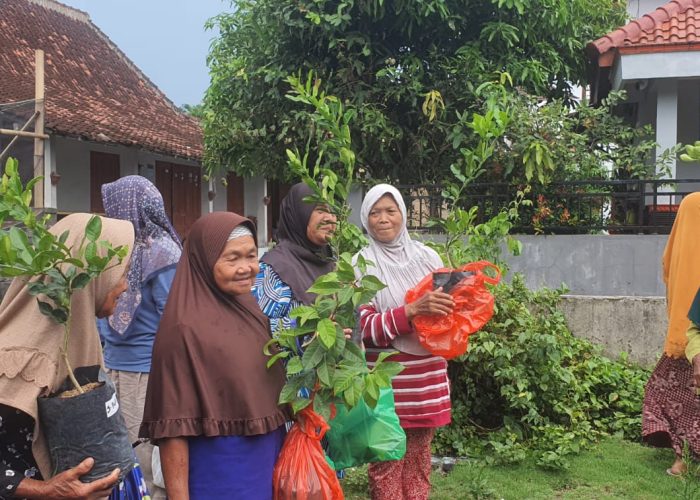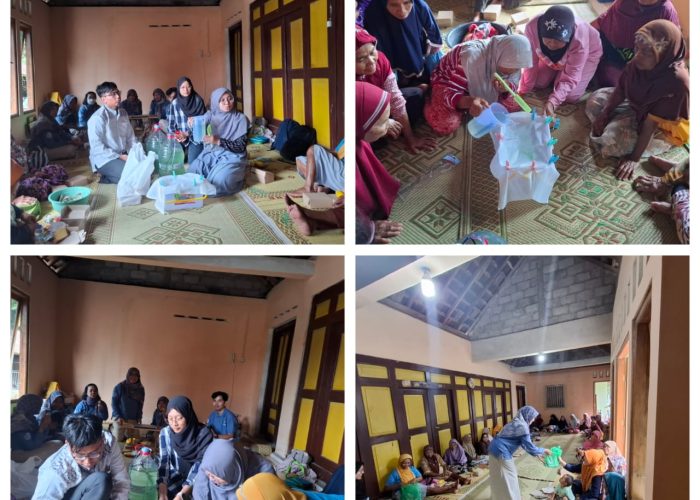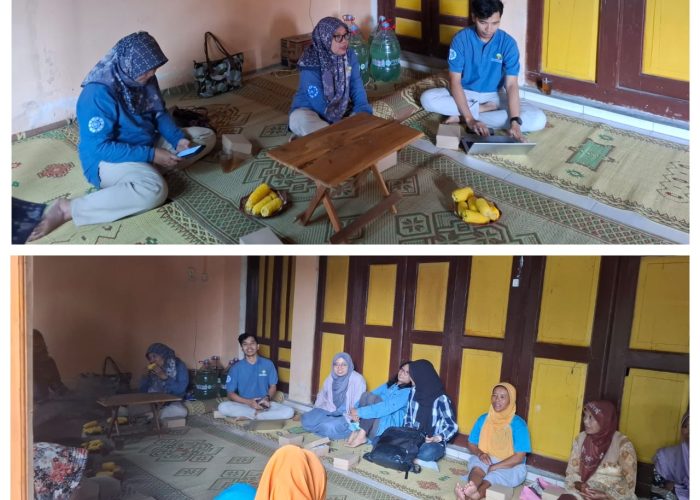In the midst of heavy rain on Friday 1 November 2024, the Community Service team of Wukirsari Village carried out the final agenda of a series of activities for the Partner Village Program, Faculty of Biologi UGM 2024. This event focused on the utilization of compost and liquid fertilizer for medicinal plants (TOGA). This meeting served as an application of the outcomes from the earlier meeting of the Wukirsari Partner Village Program, specifically related to composting and the production of liquid organic fertilizer. The event was opened by Prof. Rina Sri Kasiamdari, S.Si., Ph.D., followed by a presentation by Dr. Wiko Arif Wibowo, S.Si.
“Medicinal plants (TOGA) are household remedies that have long been utilized by the community, particularly for cooking purposes,” stated Dr. Wiko at the beginning of his presentation to the 31 members of the Wukirsari PKK who attended. Various herbal roots (such as turmeric, ginger, and aromatic ginger), lemongrass, and bay leaves are examples of TOGA plants that offer numerous health benefits. Recipes can be adjusted according to the desired use by adding other ingredients like lime juice, lemon, and honey—for example, a mixture of lime, ginger, and honey to treat cough and cold; turmeric for fever or diarrhea; and lemongrass with honey for gallstones. TOGA plants can be consumed by drinking the juice directly or by boiling them first.
In rural areas, where there may still be plenty of open land, TOGA plants can be grown directly in the ground rather than in pots or polybags. “Compost can be added to the planting medium in equal proportions. In contrast, liquid organic fertilizer should first be diluted with water to avoid high concentration, for instance, with a 1:10 ratio,” explained Dr. Wiko.
After the presentation on the topic of TOGA, the activity continued with an explanation of the Spirulina microalgae harvesting process, which had been cultivated in a previous session. Assisted by four students—Tia Erfianti, Renata Adaranyssa Egistha Putri, Seisha Salsabila Rosandi, and Abdurrahman Muhammad Fikri Rasdi—the harvesting process was demonstrated, including filtering, drying, grinding (into powder), and packaging. Together, the members of PKK Wukirsari filtered Spirulina from several gallons of culture. The filtered product was then dried, either by sun-drying or using an oven, to obtain dried sheets. These sheets can be consumed directly or ground into powder using a blender. The amount of product obtained depends greatly on the concentration or quantity of microalgae in the culture; the more intense the green-blue color, the greater the yield. Each session of the day included discussions and Q&A with participants. A quiz session with door prizes for correct answers made the atmosphere even more lively and exciting.
In today’s meeting, the Wukirsari Partner Village Program faculty team, represented by Prof. Dr. Diah Rachmawati, S.Si., M.Si., Dr. Maryani, M.Sc., Utaminingsih, S.Si., M.Sc., Novita Yustinadiar, S.Si., M.Si., and Dr. Siti Nurbaiti, presented various TOGA plants. Different of plants, including betel, lemongrass, bay leaves, turmeric, pandan, binahong, and various citrus varieties (such as lemon, lime, sour lime, and kaffir lime), totaling 10 types and 68 plants, was given to the members of PKK Wukirsari who attended.
At the closing session, led by Dr. Maryani, M.Sc., the faculty team and the Wukirsari PKK members exchanged thanks for the opportunity to collaborate throughout the Partner Village Program. Today’s event aims to enhance community knowledge and contribute to broader benefits, supporting Indonesia’s Sustainable Development Goals (SDGs), specifically SDG 2 – Zero Hunger, SDG 3 – Good Health and Well-being, SDG 12 – Responsible Consumption and Production, and SDG 15 – Life on Land.





